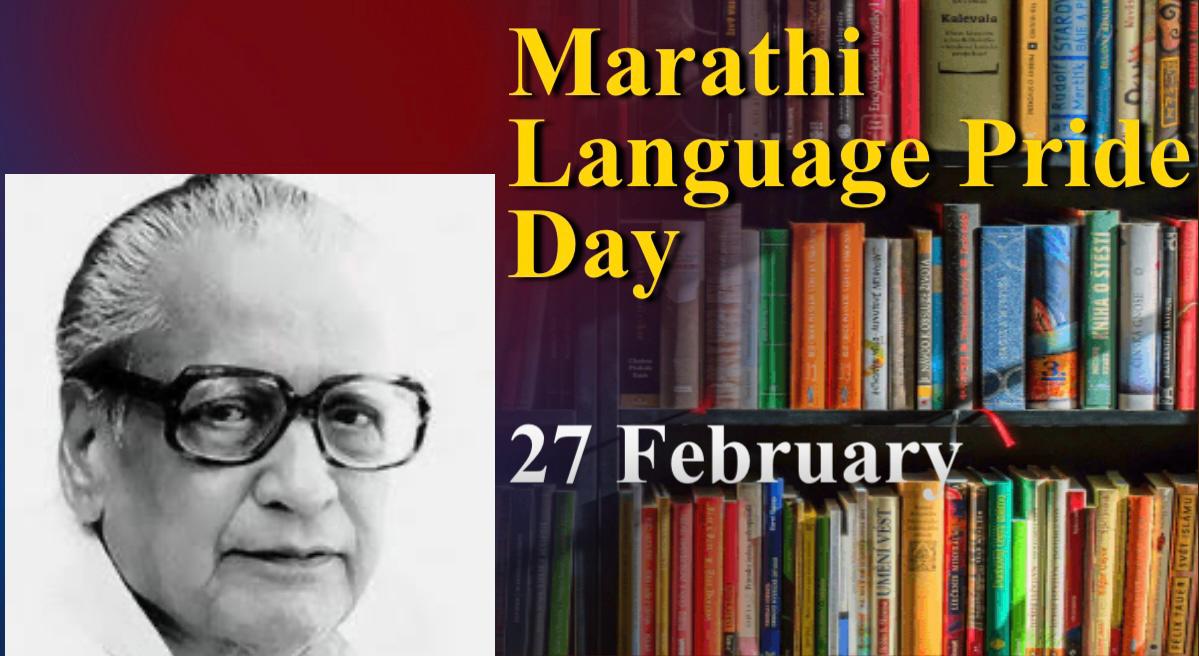Why Marathi Language Pride Day is celebrated? What is the relationship between Kusumagraj and Marathi Language Day?
Marathi Language Pride Day is celebrated on 27th February every year. This day is celebrated as the birthday of Kusumagraj Vi Va Shirwadkar i.e. Vishnu Vaman Shirwadkar. Marathi Language Day is a joyous celebration celebrating the richness and diversity of the Marathi language. The day has cultural significance as it promotes a sense of pride and unity among the Marathi speaking community. Marathi Language Day is not only a festival to celebrate the language but also a day to sing praises of Maharashtra’s deep literary and cultural tradition.
Cultural Pride:
Marathi Language Day serves as a platform to celebrate the linguistic and cultural tapestry of Maharashtra. The day is celebrated with various events, programs and activities organized by educational institutions, cultural institutions and individuals. The aim of these activities is to spread the Marathi language and literature by instilling a sense of cultural pride in the people of Maharashtra.
Promoting Linguistic Diversity:
Marathi language day is not only limited to Maharashtra but it resonates among Marathi speakers all over the world. It emphasizes the importance of preserving linguistic diversity and recognizing the distinct identity that each language brings to India’s cultural mosaic. Marathi, with its rich literary tradition and expressive nuances, contributes significantly to the linguistic heritage of the country.
Literary Excellence:
Maharashtra is the cradle of literary excellence and Marathi Language Day is an occasion to honor and celebrate the greats who enriched Marathi literature. Renowned poets like Kusumagraj, VS Khandekar and Namdev Dhasal have left an indelible mark on literature. Their contribution is remembered and appreciated on this day.
Educational Activities:
Marathi Language Day also serves as an opportunity to spread the language among the younger generation. Schools and colleges organize competitions, cultural events and language workshops to encourage students to learn and appreciate the beauty of Marathi literature. These activities play an important role in increasing linguistic and cultural awareness.
Preserving heritage:
In a rapidly globalizing world, where regional languages sometimes face challenges, Marathi Language Day is a symbol of resilience and pride. It reminds people of the importance of preserving and promoting their linguistic and cultural heritage, ensuring that future generations continue to embrace the beauty of Marathi language and literature.
: Kusumagraja’s contribution to Marathi language
Kusumagraja, also known as Vishnu Vaman Shirwadkar. He stands as an eternal pillar in the Marathi literary world. His contributions in poetry, drama and novels not only enriched Marathi literature but also left an indelible mark on the cultural landscape of Maharashtra. Kusumagraja, a multifaceted genius, is known for his literary prowess, social contributions and his ability to capture the essence of human experience in his works.
Early Life and Education:
Born on February 27, 1912 in Maharashtra, Kusumagraja was fond of literature since childhood. He completed his education at Fergusson College, Pune and it was from there that his literary journey began to flourish. The name “Kusumagraja” was a poetic nickname he bore, symbolizing his love for flowers (kusum) and his position as the elder brother (agraja) among his siblings.
Poem: Symphony of Emotions:
Kusumagraja’s poetry is a lyrical journey of human emotions. His verses resonate with profound insights addressing themes of love, patriotism, social issues and spirituality. His poetry collection “Vishakha” brought him great recognition. Kusumagraja’s ability to convey complex emotions in a simple yet evocative manner endeared him to readers of all ages.
Heritage and Identity:
Kusumagraja was awarded the prestigious Jnanpith Award in 1987, India’s highest literary honour, in recognition of his outstanding contribution to Marathi literature. His legacy continues to inspire aspiring writers and poets and his works form an integral part of Marathi literature.
